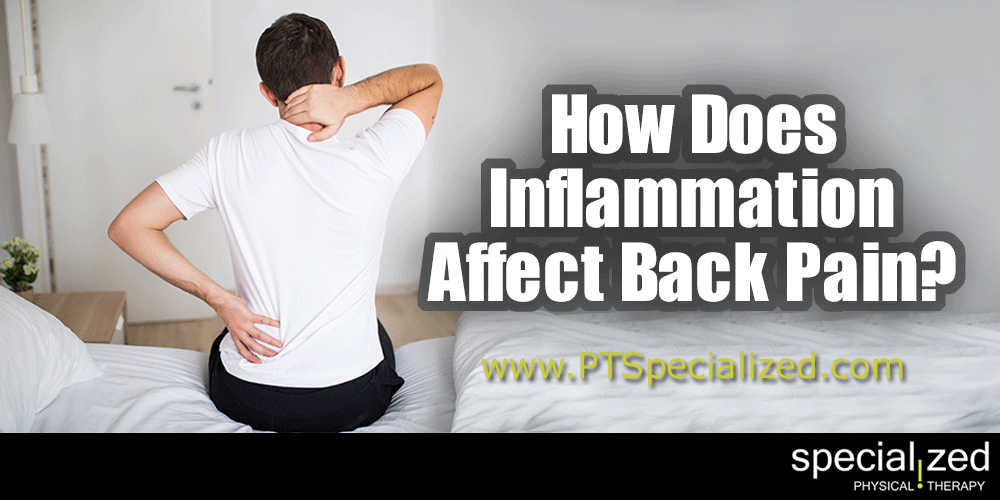You have back pain. Your doctor said that it is because of a specific reason: a disc issue, a fracture or arthritis, for example. How does inflammation affect your back pain?
Inflammation is actually your body’s response to harm
Whether an injury, an infection or some kind of irritant, inflammation is how your body tries to protect itself. It’s your immune system working to get white blood cells to the affected area.
Inflammation causes redness, swelling, tenderness and probably heat in the area. It can add to the pain from the initial injury or infection.
One of insidious things that happens with inflammation is that it doesn’t stay in one place. You may have gotten some kind of injury that doesn’t seem to be connected with your back pain, but inflammation has traveled through your system and is now causing pain in your back.
Sometimes inflammation is the problem with back pain
Another problem arises when your body’s inflammatory response is actually the problem. In situations where you have rheumatoid arthritis, psoriatic arthritis or similar autoimmune issues, the inflammation is the problem.
In those situations, your body’s normal response to injury, etc., is hyper sensitive and the inflammation is actually in response to your immune system attacking healthy tissues. That not only causes more injury, but also more inflammation.
This compounding effect of inflammation is why it can be hard to track down the exact cause of your back pain.
So how do you deal with it?
Start with finding a way to address and minimize the inflammation. If your doctor has you go to physical therapy, they can help with the inflammation with heat, cold, electrical stimulation and exercise.
Your doctor may have you take an anti-inflammatory such as ibuprofen or prescribe something stronger.
If you are experiencing back pain and you think it might be caused by inflammation, give us a call today to schedule a free pain assessment… (720) 493-1181

